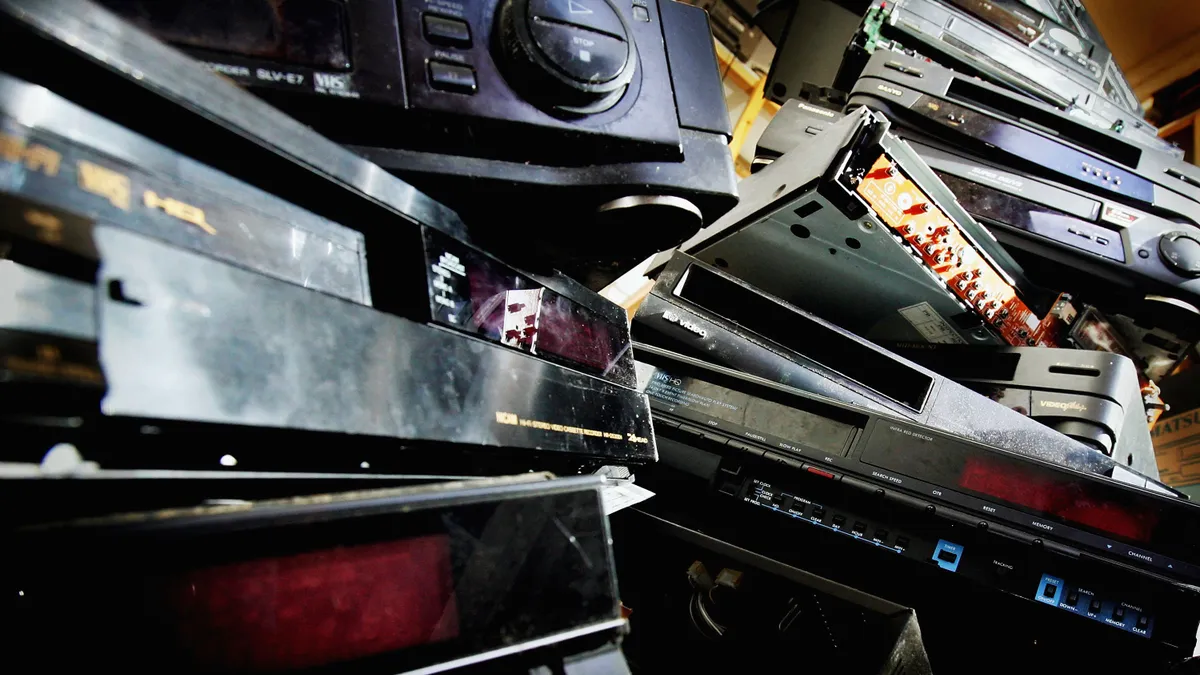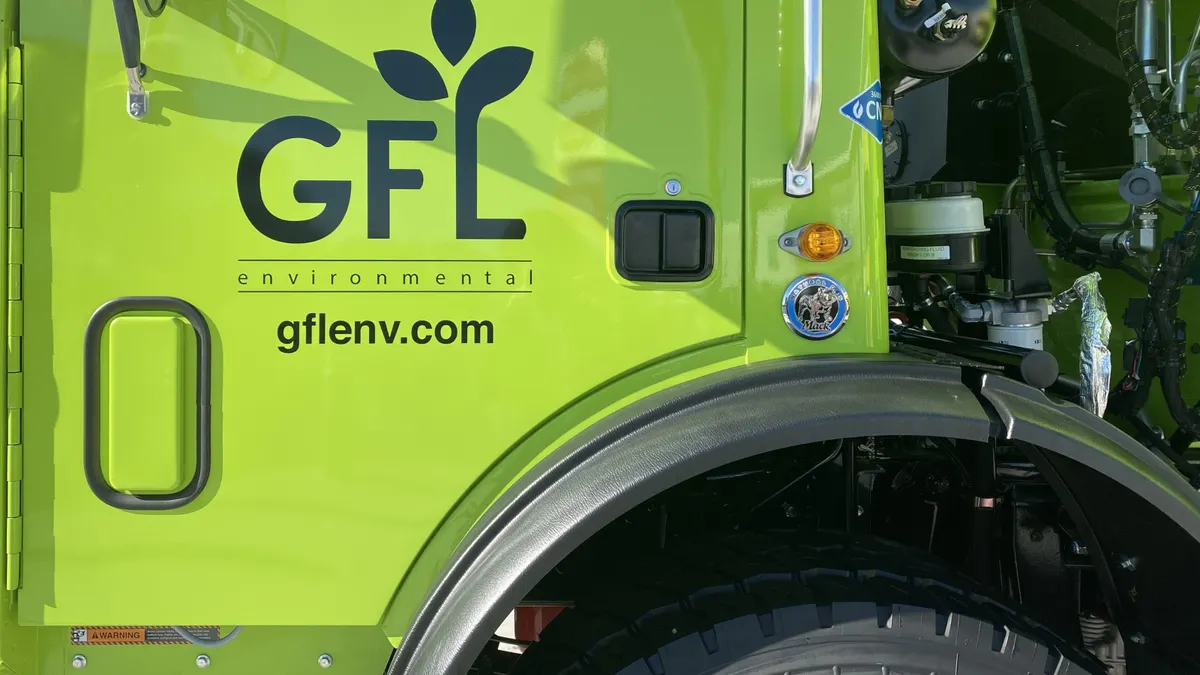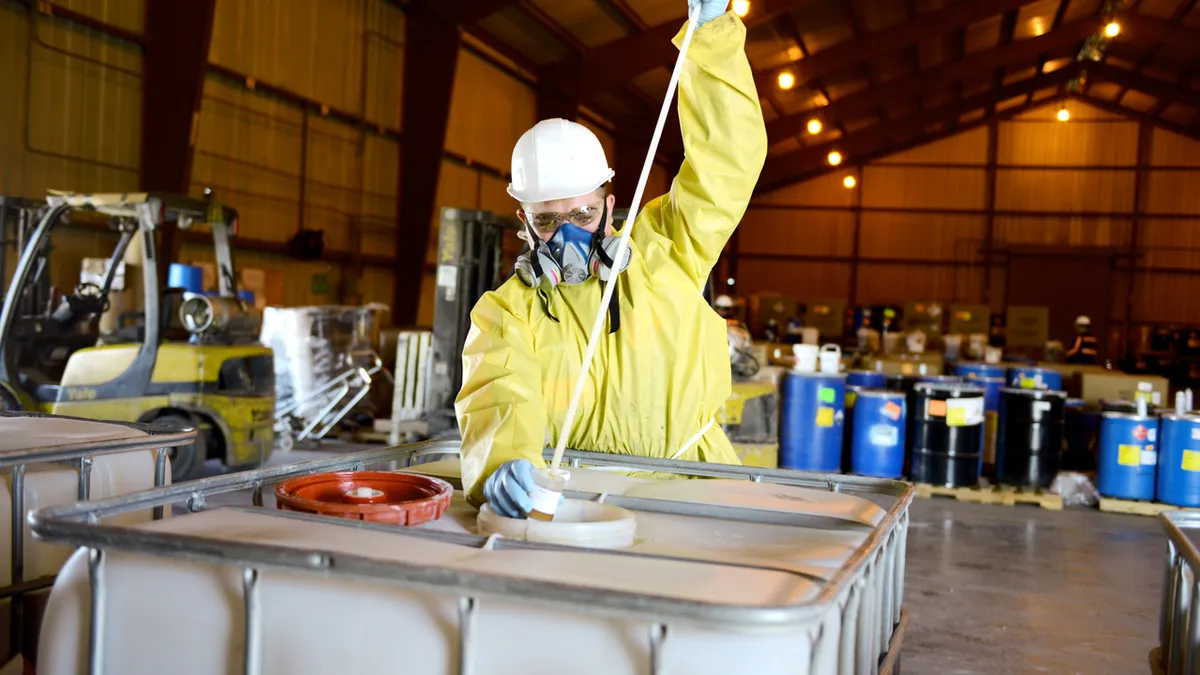The Northeast Recycling Council's virtual spring conference, held April 12-13, highlighted how M&A activity, internal and external work on diversity, and electronics repair legislation could shape the industry in the near future. Here are some takeaways from those conversations.
Robust M&A activity a hallmark of current and near-future waste business
Mergers and acquisitions in the waste and recycling industry are happening at a near-record pace. Speakers at a panel on the M&A market predicted the trend continuing to shape the way the industry does business – and will continue to impact the type of service customers receive – for years to come.
Last year, M&A activity in the sector increased 65% over 2020, said Doug Usifer, a managing director at Capstone Partners, an investment banking firm with a focus in the waste and recycling sector. The firm counted 236 deals in this sector in 2021. The majority of these deals involved public companies, but about 35% were private equity deals, he said.
“There's quite a bit happening now that's really accelerating,” said Cole Rosengren, Waste Dive’s lead editor, during the panel. “There are a lot of factors driving small businesses to sell: labor constraints, COVID, sustainability expectations.”
Rosengren said there will likely be fewer public-to-public deals inked in the near future because there are fewer public companies than in years past, largely due to this consolidation. However, more companies could go public in the future. Next up is Rubicon, which announced a $1.7 billion initial public offering in December that is expected to be completed this quarter.
The increase in M&A activity has also meant more of these deals catch the eye of the U.S. Department of Justice to review for possible antitrust issues. For the last five years, the DOJ has been asked to review about a dozen potential cases each year in the waste and recycling sector. The threshold for review as of 2022 is deals where the purchase price of the asset is $101 million or above, said Daniel Monahan, a trial attorney in the antitrust division of the DOJ.
Monahan focuses on large acquisitions in the waste industry that could impact interstate commerce. Not every review turns into a major investigation, but “the average per year of filings has certainly gone up,” he said.
The DOJ identifies possible geographic areas of overlap where both companies serve customers and compete against each other, and it also looks for whether the companies provide the same type of service in that area. In the case of WM’s $4.6 billion acquisition of Advanced Disposal in 2020, for example, the DOJ required a $863.5 million divestiture of assets in 10 states, with WM ultimately selling them to GFL Environmental. The DOJ assessed the geography and service dynamics in each of these markets, which Monahan said looked different in each location because of a combination of varying local regulations and other players in each market.
“I've never had any one case or any one state ultimately end up having the same exact sort of market dynamics,” he said.
Deals can come with some positive trends for the industry, Usifer said. A larger company can improve on a smaller company’s efficiency while integrating any innovations smaller startups are known for, he said. Larger companies can also have more robust safety programs and resources, Rosengren added, which can help injury and incidence rates decline at the smaller companies involved in the deal.
The ideal merger will reduce costs “that lead to better price competition downstream,” Monahan said. Republic Services’ pending $2.2 billion deal to acquire US Ecology is an example where “they aren’t competing against each other, and they provide adjacent space services, but you could see the possibility in that merger for a better total waste stream management system,” he said.
However, mergers can have their downsides, especially if local customers feel their service starts to suffer and loses its “local flavor” after a larger company takes over a smaller regional business, Rosengren said. And smaller companies tend to be able to make more nimble decisions to fit local markets, which could fade when larger regional companies take over, Usifer added.
Creating lasting DEI impacts involves internal and external work
As waste and recycling companies invest in M&A activity or other bottom line improvements, they should also invest in making diversity, equity and inclusion a stronger part of their operations, speakers at a DEI panel said.
Waste and recycling organizations represented on the panel said they began working more earnestly on their DEI principles following the death of George Floyd, who was killed by police in May 2020. In the years since, the groups have focused on diversity in hiring practices and integrating more intentional and thoughtful conversations about diversity into daily work life. This also involves creating space for tough conversations and ongoing accountability, said Melissa Young, DEI committee member of the New York State Association for Reduction, Reuse and Recycling.
NYSAR3 already had a women’s group, which since 2018 has focused on networking, professional development and mentoring. It began a DEI group in 2020 to assess its hiring practices and reach out to members for feedback on how to better represent its membership. NYSAR3 is now in the process of reevaluating its membership structure, with plans to subsidize fees to make conferences and events more accessible.
“We're rethinking all of our internal structures and trying to figure out what barriers exist internally, and keeping our members engaged and giving them opportunities to participate and expand the membership,” Young said.
Employee-led initiatives also hold a significant role in changing internal company culture, said Olga Zamora, vice president of human resources at the Institute of Scrap Recycling Industries. ISRI's employee-led diversity group, which started in 2020, mainly functioned as a way to discuss racial issues through meetings and book clubs. In the years since, it has expanded to discuss class, LGBTQ experiences and other issues. Though the pandemic has made it hard to schedule more recent meetings, Zamora said the group is extremely driven. “They will ask the hard questions. They will step up,” she said.
ISRI's leadership fully supports the group’s aims, she said. It’s important that any company looking to start or maintain a similar group has the full buy-in from the company’s higher-ups, Zamora said, because without the “trust factor” and support of everyone in the company, DEI goals could flounder and employees may not feel comfortable bringing up internal problems or observations.
Both Young and Zamora also recommended bringing in outside professionals to help foster conversations and create frameworks to set goals, mission statements and trainings. Outside perspectives are critical to any DEI program’s success, Young said.
“We're making the conscious decision to seek collaborators who are experts in their field, that can help guide us into discussions and conversations,” she said. “To reduce bias is to actively work with stakeholders to create a collaborative, safe and welcoming environment, and we're trying to be as collaborative as possible and engage new people, which may be a little bit out of our comfort zone.”
Right to repair legislation finally gaining traction, but major opposition remains
Meanwhile, advocates for right-to-repair legislation, which aims to make it easier for consumers to repair their own electronics, are starting to see traction after about a decade of pushback from major companies that once opposed the idea. During a packaging panel, Kyle Wiens, CEO of iFixit, noted Samsung recently announced a self-repair program for some of its popular smartphone models, and Microsoft now provides similar self-repair tools.
“The ball is starting to get rolling, so this is not the unwinnable underdog fight that it may have been for the last 10 years,” he said.
Numerous state bills are also in the works in New York, Massachusetts and Pennsylvania. California’s SB 983, set for an April 19 hearing, aims to make parts, tools and information available for electronics sold in the state, he said. Meanwhile, Colorado is working on a right-to-repair bill for wheelchairs.
However, a right-to-repair bill in Washington state failed to make it to the finish line this year despite support from Microsoft, he said. In Nebraska, powerful opposition from John Deere, which historically has opposed right-to-repair legislation, ultimately killed a bill through supporting a filibuster, he said. John Deere is the subject of a U.S. Federal Trade Commission complaint, in which farmers said they are unfairly prevented from accessing access to software, parts and manuals necessary for repairing their farm equipment.
Despite the loss in Nebraska, Wiens expects more gains in coming years, even if state bills don’t succeed in 2022. “We're winning on some fronts. We haven't gotten legislation done yet, but we are optimistic, and there's a whole heck of a lot of momentum.”
States are also working on how to manage single-use products with electronic components and batteries not meant to be repaired. California’s AB 1690 would ban single-use e-cigarettes and single-use cannabis vapes.
During a panel on battery sustainability, Mitchell Colbert, head of social and environmental impact at vape company Vessel, said the cannabis industry has also gotten more involved in educating consumers about the right way to handle vape pens. Vessel partners with cannabis waste company Gaiaca to offer disposal boxes disposal boxes “so they can be responsibly disposed of or recycled at the right facility, rather than consumers just throwing them into the trash — or worse, the gutter or a park somewhere.”



















